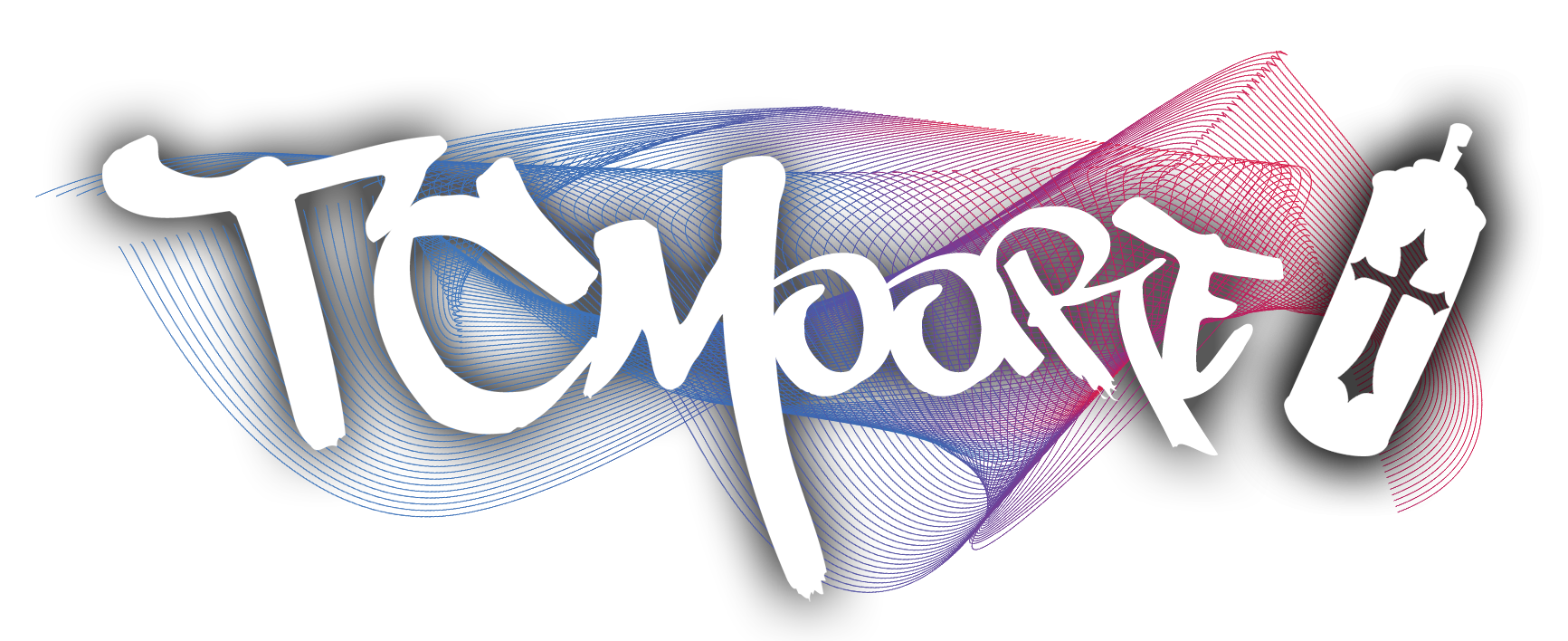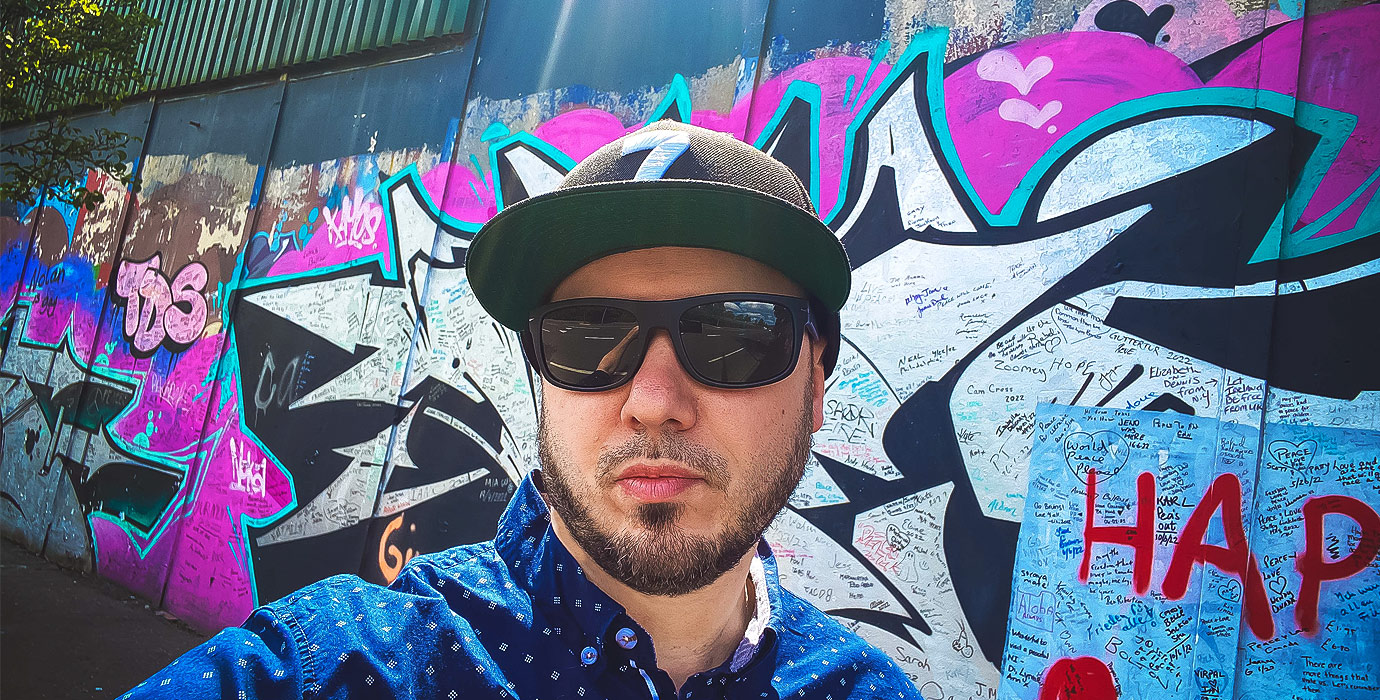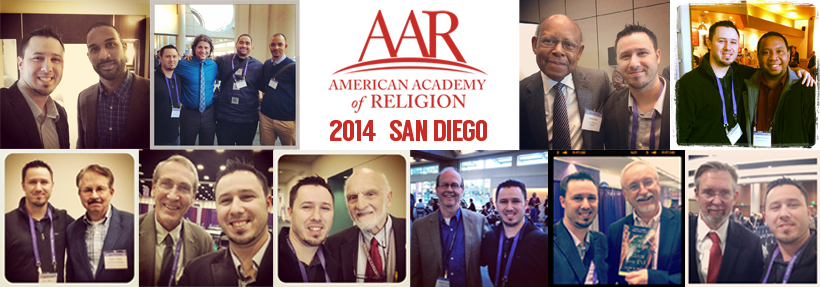
This past weekend, I spent four days in sunny San Diego at the annual conference of the
Society of Biblical Literature (SBL) and the American Academy of Religion (AAR). This is how SBL/AAR describes their own conference:
The American Academy of Religion brings thousands of professors and students, authors and publishers, religious leaders and interested laypersons to its Annual Meeting each year. Co-hosted with the Society of Biblical Literature, the Annual Meetings are the largest events of the year in the fields of religious studies and theology. More than 10,000 people attended the 2013 Annual Meetings, enjoying access to some 900 academic sessions and additional meetings.
But I describe it as
Theology Nerd Heaven!
For a theology nerd like me, meeting biblical scholars and theologians who I’ve read and written about for years, while also meeting new scholars and fellow theologues, is a heavenly experience I won’t soon forget. Not to mention, there were dozens of great sessions to attend—so many I couldn’t attend even a fraction of them all. But the ones I was able to attend were fantastic.

During the conference, I had the pleasure of rooming with (and meeting in person for the first time)
Drew Hart, who is a PhD candidate at Lutheran Seminary in Philadelphia. He is an amazing person: passionate, pastoral, scholarly, and grounded. His area of study is the intersections of Black Liberation theologies and Anabaptist theologies. I’m so glad I had such a cool roommate for AAR!

I didn’t expect to run into
Vince Bantu, my friend from Gordon-Conwell Boston and Cambridge Community Fellowship Church (CCFC). Vince is a PhD candidate at the Catholic University of America in D.C. and his area of expertise is early, ancient African Christianities (especially Coptic and Syrian). He and I talked with
Peter Heltzel, Associate Professor of Systematic Theology at New York Seminary and Director of the Micah Institute, as well as
Brian Bantum, Associate Professor of Theology at Seattle Pacific University.

The main reason I was at AAR, besides all the nerdy fun, was to present a response paper in the second Open and Relational Theologies session, celebrating 20 years since the publishing of
The Openness of God (IVP, 1994). My paper was entitled
“Open Theism and the Millennial in the Pew: Evangelical Theology and Marketing in the Age of the World Wide Web”. Three of the original five authors of The Openness of God were there:
John Sander,
Richard Rice, and
David Basinger. The panel was rounded out with myself,
Bethany Sollerender, and
Thomas Jay Oord.

Another Open theists I ran into at AAR is a friend I’ve interacted with online for years but had yet to meet in person,
Ekaputra Tupamahu. Eka is an Indonesian, Pentecostal pastor, theologian, and PhD candidate at Vanderbilt University in Tennessee.

The theme of meeting folks in person who I’ve interacted with a lot online continued with meeting
Brian LePort, PhD candidate at the University of Bristol in the UK, and
Benjamin Corey, doctoral candidate at Fuller in the Doctor of Missiology program, as well as prolific writer/blogger at Formerly Fundie. He joined Drew, myself, and
Anderson Campbell for dinner. Anderson is the editor of the new book
Father Factor, which includes essays by Drew Hart,
Larry Garcia, and several other friends/acquaintances. (Check it out!)
Ben Corey, Anderson, Drew, and I are also part of an online group called
MennoNerds. So, we connected with several other MennoNerds for
lunch while in San Diego as well. We met with
April and Gary Yamasaki,
Joshua Paul Smith, and
Ryan Gladwin.
The whole conference was a fantastic opportunity to rub shoulders and talk with theologians and biblical scholars from all over. Many of my favorite authors to read where there and I got the chance to introduce myself and take a picture with them. I was able to meet
James Cone, “father of Black theology,”
Walter Brueggemann, world-renowned Hebrew Bible scholar and theologian,
Michael J. Gorman, Pauline/New Testament scholar,
Roger Olson, Arminian/Free Will theologian and church history professor,
John Walton, Hebrew Bible scholar, and
Richard Hays, New Testament/Pauline theologian.
I had an amazing time at AAR in San Diego. I will definitely be putting it on my calendar for next year!
 This past weekend, I spent four days in sunny San Diego at the annual conference of the Society of Biblical Literature (SBL) and the American Academy of Religion (AAR). This is how SBL/AAR describes their own conference:
This past weekend, I spent four days in sunny San Diego at the annual conference of the Society of Biblical Literature (SBL) and the American Academy of Religion (AAR). This is how SBL/AAR describes their own conference:
 During the conference, I had the pleasure of rooming with (and meeting in person for the first time) Drew Hart, who is a PhD candidate at Lutheran Seminary in Philadelphia. He is an amazing person: passionate, pastoral, scholarly, and grounded. His area of study is the intersections of Black Liberation theologies and Anabaptist theologies. I’m so glad I had such a cool roommate for AAR!
During the conference, I had the pleasure of rooming with (and meeting in person for the first time) Drew Hart, who is a PhD candidate at Lutheran Seminary in Philadelphia. He is an amazing person: passionate, pastoral, scholarly, and grounded. His area of study is the intersections of Black Liberation theologies and Anabaptist theologies. I’m so glad I had such a cool roommate for AAR!
 I didn’t expect to run into Vince Bantu, my friend from Gordon-Conwell Boston and Cambridge Community Fellowship Church (CCFC). Vince is a PhD candidate at the Catholic University of America in D.C. and his area of expertise is early, ancient African Christianities (especially Coptic and Syrian). He and I talked with Peter Heltzel, Associate Professor of Systematic Theology at New York Seminary and Director of the Micah Institute, as well as Brian Bantum, Associate Professor of Theology at Seattle Pacific University.
I didn’t expect to run into Vince Bantu, my friend from Gordon-Conwell Boston and Cambridge Community Fellowship Church (CCFC). Vince is a PhD candidate at the Catholic University of America in D.C. and his area of expertise is early, ancient African Christianities (especially Coptic and Syrian). He and I talked with Peter Heltzel, Associate Professor of Systematic Theology at New York Seminary and Director of the Micah Institute, as well as Brian Bantum, Associate Professor of Theology at Seattle Pacific University.
 The main reason I was at AAR, besides all the nerdy fun, was to present a response paper in the second Open and Relational Theologies session, celebrating 20 years since the publishing of The Openness of God (IVP, 1994). My paper was entitled “Open Theism and the Millennial in the Pew: Evangelical Theology and Marketing in the Age of the World Wide Web”. Three of the original five authors of The Openness of God were there: John Sander, Richard Rice, and David Basinger. The panel was rounded out with myself, Bethany Sollerender, and Thomas Jay Oord.
The main reason I was at AAR, besides all the nerdy fun, was to present a response paper in the second Open and Relational Theologies session, celebrating 20 years since the publishing of The Openness of God (IVP, 1994). My paper was entitled “Open Theism and the Millennial in the Pew: Evangelical Theology and Marketing in the Age of the World Wide Web”. Three of the original five authors of The Openness of God were there: John Sander, Richard Rice, and David Basinger. The panel was rounded out with myself, Bethany Sollerender, and Thomas Jay Oord.
 Another Open theists I ran into at AAR is a friend I’ve interacted with online for years but had yet to meet in person, Ekaputra Tupamahu. Eka is an Indonesian, Pentecostal pastor, theologian, and PhD candidate at Vanderbilt University in Tennessee.
Another Open theists I ran into at AAR is a friend I’ve interacted with online for years but had yet to meet in person, Ekaputra Tupamahu. Eka is an Indonesian, Pentecostal pastor, theologian, and PhD candidate at Vanderbilt University in Tennessee.
 The theme of meeting folks in person who I’ve interacted with a lot online continued with meeting Brian LePort, PhD candidate at the University of Bristol in the UK, and Benjamin Corey, doctoral candidate at Fuller in the Doctor of Missiology program, as well as prolific writer/blogger at Formerly Fundie. He joined Drew, myself, and Anderson Campbell for dinner. Anderson is the editor of the new book Father Factor, which includes essays by Drew Hart, Larry Garcia, and several other friends/acquaintances. (Check it out!)
Ben Corey, Anderson, Drew, and I are also part of an online group called MennoNerds. So, we connected with several other MennoNerds for lunch while in San Diego as well. We met with April and Gary Yamasaki, Joshua Paul Smith, and Ryan Gladwin.
The whole conference was a fantastic opportunity to rub shoulders and talk with theologians and biblical scholars from all over. Many of my favorite authors to read where there and I got the chance to introduce myself and take a picture with them. I was able to meet James Cone, “father of Black theology,” Walter Brueggemann, world-renowned Hebrew Bible scholar and theologian, Michael J. Gorman, Pauline/New Testament scholar, Roger Olson, Arminian/Free Will theologian and church history professor, John Walton, Hebrew Bible scholar, and Richard Hays, New Testament/Pauline theologian.
The theme of meeting folks in person who I’ve interacted with a lot online continued with meeting Brian LePort, PhD candidate at the University of Bristol in the UK, and Benjamin Corey, doctoral candidate at Fuller in the Doctor of Missiology program, as well as prolific writer/blogger at Formerly Fundie. He joined Drew, myself, and Anderson Campbell for dinner. Anderson is the editor of the new book Father Factor, which includes essays by Drew Hart, Larry Garcia, and several other friends/acquaintances. (Check it out!)
Ben Corey, Anderson, Drew, and I are also part of an online group called MennoNerds. So, we connected with several other MennoNerds for lunch while in San Diego as well. We met with April and Gary Yamasaki, Joshua Paul Smith, and Ryan Gladwin.
The whole conference was a fantastic opportunity to rub shoulders and talk with theologians and biblical scholars from all over. Many of my favorite authors to read where there and I got the chance to introduce myself and take a picture with them. I was able to meet James Cone, “father of Black theology,” Walter Brueggemann, world-renowned Hebrew Bible scholar and theologian, Michael J. Gorman, Pauline/New Testament scholar, Roger Olson, Arminian/Free Will theologian and church history professor, John Walton, Hebrew Bible scholar, and Richard Hays, New Testament/Pauline theologian.


